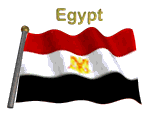Eid el-Fitr saves Egyptian market 'for the time being'
 Cairo - While world markets were going up and down on Tuesday, in the wake of US Congress defeat of a 700-billion- dollar plan to ease trouble in the financial industry, the Egyptian stock market was safe from all the turmoil.
Cairo - While world markets were going up and down on Tuesday, in the wake of US Congress defeat of a 700-billion- dollar plan to ease trouble in the financial industry, the Egyptian stock market was safe from all the turmoil.
It was closed - marking the Eid al-Fitr holiday.
The Egyptian Stock Exchange, along with other Arab bourses, were not open due to the three-day feast holiday, which marks the end of the fasting month of Ramadan.
The Egyptian market will resume trading next Tuesday, since the feast is followed by the national holiday of October 6, celebrating the 1973 war, which is on Monday.
Eskander Tooma, head of the finance unit at the American University in Cairo, says that the holiday had saved the local market from huge losses - "for the time being," at least.
"When world markets fall, foreign investors in the Egyptian market would need liquidity to cover up their losses abroad, therefore they sell, causing the market to dip," Tooma told Deutsche Presse Agentur dpa, adding that Egyptians follow their footsteps immediately, which adds to the decline.
"Many things can happen in one week. Investors should take a timeout to reflect on things," he said. "Today we have escaped the damage, but if nothing was done, what is bound to happen will happen."
A day after Wall Street's worst day in 20 years, European and US markets gained little optimism on Tuesday, as President George W Bush assured that the bail-out plan was not dead.
German Chancellor Angela Merkel announced she expects US lawmakers to pass the rescue package this week describing it as "vital for restoring confidence to markets."
Without the bail-out plan, which would give the US Treasury Department authority to buy 700 billion dollars' worth of failing mortgage assets, credit markets around the world could remain frozen, in turn leading possibly to a recession.
Egyptian economists say that it is expected that the local market, like all emerging markets, will be affected by the US market.
They also argue that the lack of awareness among Egyptian investors is the more dangerous element, leading to a lot of speculation.
Tooma said that only 30 per cent of transactions on the Egyptian Stock Exchange are by institutions, while the rest are by retail investors, which increases the risk of the negative effect.
Most Gulf Arab bourses rose on Monday, the last trading day before the Eid al-Fitr holiday. Egypt's benchmark CASE30 gained 0.79 per cent to end at 7,059.16.
The Egyptian bourse had almost doubled in value over the past four years, reaching a high of 12,000 points last May. The dramatic fall since then came amid turmoil in the global banking sector. (dpa)